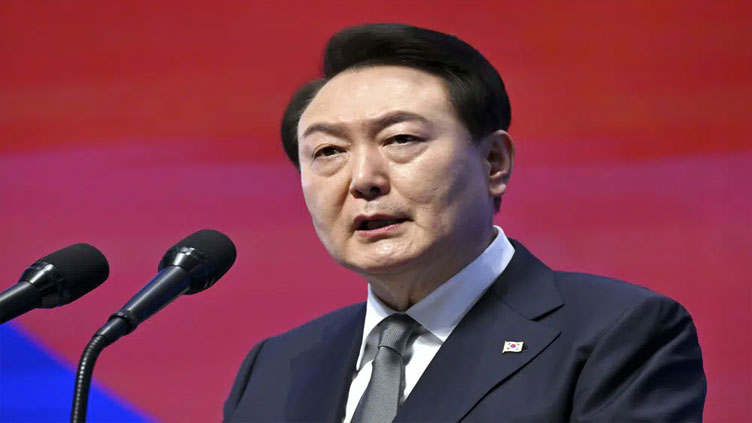South Korea's Yoon renews hopes for improved ties with Japan

World
South Korea’s Yoon renews hopes for improved ties with Japan
SEOUL (AP) — South Korea’s president on Wednesday called Japan “a partner that shares the same universal values” and renewed hopes to repair ties frayed over Japan’s colonial rule of the Korean Peninsula.
Since taking office in May last year, President Yoon Suk Yeol has been pushing to mend the historical grievance with Japan and boost a Seoul-Tokyo-Washington security cooperation to better cope with increasing North Korean nuclear threats.
In a televised speech marking the 1919 uprising against the Japanese colonizers, Yoon urged his people to remember what he called “patriotic martyrs who gave their all for our country’s freedom and independence during the dark days.” But he avoided mentioning any specific colonial wrongdoing as he explained why greater cooperation with Japan is needed.
“Now, a century after the March First Independence Movement, Japan has transformed from a militaristic aggressor of the past into a partner that shares the same universal values with us and cooperate on issues of security, economy and global agendas,” Yoon said.
“In particular, the trilateral cooperation among the Republic of Korea, the United States and Japan has become more important than ever to overcome the serious nuclear threats posed by North Korea and global polycrisis,” Yoon said.
Leif-Eric Easley, a professor at Ewha University in Seoul, said Yoon’s address “offers hopeful signs not only for Seoul’s relations with Tokyo, but also for South Korea‘s role in the world.”
“Emphasizing shared values is much more than rhetoric if backed up by a foreign policy that deepens trilateral cooperation with the U.S. and Japan while increasing contributions to global efforts, such as supporting Ukraine, strengthening supply chains, and countering climate change,” Easley said.
South Korea and Japan are closely linked economically and culturally and are both key U.S. allies in the region. But they often bicker over issues stemming from Japan’s 1910-45 occupation of the Korean Peninsula.
At the center of their current dispute is South Korean court rulings in 2018 that ordered two Japanese companies — Nippon Steel and Mitsubishi Heavy Industries — to compensate Koreans who had been forced to work in their factories during the Japanese colonial period.
The companies and the Japanese government have dismissed the rulings, arguing that all compensation issues were already settled under a 1965 treaty that normalized bilateral ties and included Tokyo’s provision of hundreds of millions of dollars to Seoul in economic assistance and loans.
The dispute prompted the two governments to downgrade each other’s trade status and Seoul to threaten to abandon an intelligence-sharing deal.
In recent months, South Korean and Japanese officials have held a series of talks to find ways to resolve the disputes over the court rulings. According to South Korean media reports, a key sticking point is whether the two Japanese companies would donate money to a South Korean foundation, which would compensate former forced laborers or their relatives involved in lawsuits as a way to allow the Japanese companies to avoid directly paying compensation.
The reported South Korean plan would include South Korean firms, which had benefited from the past Japanese economic assistance, to contribute to the foundation as well.
In Seoul’s Seodaemun Prison History Hall, a colonial period prison-turned-museum, South Koreans waved national flags, chanted slogans and sang to commemorate the 1919 uprising, a national holiday.
“I brought my children here to let them directly take part in this event and learn the meaning of the March First Independence Movement,” Lee Hyun Jin, a 43-year-old housewife, said. “I hope the Japanese government would reflect on its past (colonial wrongdoing) a bit and cooperate with us to move forward.”

